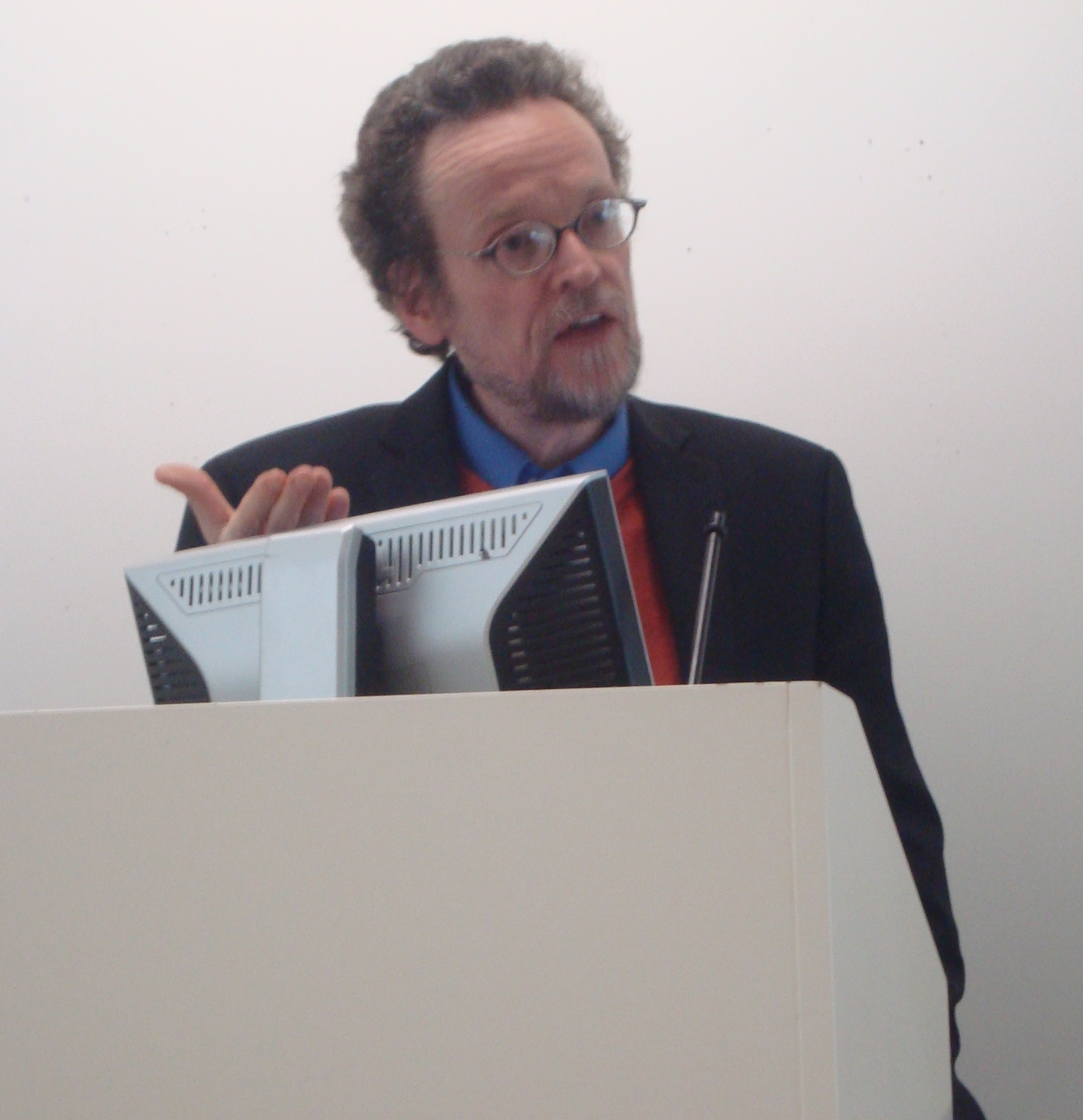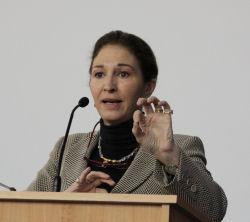
Thomas Pogge on “Globalization, Inequality and the State” Lessons from the International Financial Playground
A few weeks ago I had the opportunity to attend a talk given by Mike Bonnano, one of the Yes Men (self-proclaimed social justice pranksters famous for impersonating the CEOs of Dow Chemical, General Electric and similar corporate giants in the international media). Bonnano spoke about the need for a “post-ideological revolution” in which we rethink the existing inequalities in income and opportunity and return to the values we all learned when we were children: simple ideas such as sharing, respecting others, and fairness. These words stuck with me, and retained their salience as I listened, a week later, to Dr. Thomas Pogge speak on the topic of “Globalization, Inequality and the State.” Dr. Pogge is a renowned expert on …
South Korean Transition: A Mystery Solved By Social Policy Analysis?
On May 24, 2011 at the Nissan Centre, St. Antony’s College, the book “The Korean State and Social Policy: How South Korea Lifted Itself from Poverty and Dictatorship to Affluence and Democracy” was launched. This lively event brought together all five authors of the book: Stein Ringen, Huck-ju Kwon, Ilcheong Yi, Taekyoon Kim and Jooha Lee. Their goal was to explain the mystery of South Korea’s successful and smooth transition from authoritarianism and poverty to an affluent stable democracy. The authors stressed the importance of governance under authoritarian rule, and explored it through the prism of South Korean social policy from 1945 to 2000. Mixed governance, or state’s collaboration with other actors was at the core of the presentation and …

Incommensurability, Incompatibility and Congressman Ryan’s Proposed Budget
The theory of incommensurability presents us with the view that when forced to decide between different options, we may lack the ability to objectively compare the values underlying each alternative. Though our ultimate decision may be grounded in a variety of reasons, the fact of our decision is not proof in itself that the values behind our choice are better than those that we left behind. Some principles may rise above others, according to incommensurabilists, but that means only that they have won the battle in praxis, not in ethics. The impossibility of comparison may exist in some cases, but incommensurability fails to justify the ethics behind the ranking of values in policy matters; without compromise, the valuation of equal …

Professor Anne-Marie Slaughter Discusses New Shifts in US Diplomacy
Professor Anne-Marie Slaughter Discusses New Shifts in US Diplomacy
Play Episode
Pause Episode
Mute/Unmute Episode
Rewind 10 Seconds
1x
Fast Forward 30 seconds
00:00
/
Subscribe
Share
RSS Feed
Share
Link
Embed
Download file | Play in new windowOn May 18, 2011 Professor Anne-Marie Slaughter delivered the inaugural Distinguished Fulbright Lecture in Oxford. The topic: The Turn: US Foreign Policy from 2009 to 2011. The key message I took away from the lecture was that during the Obama Presidency, US diplomatic missions have shifted their focus more towards societal actors. The nature of US diplomacy has expanded from acting almost exclusively on a government to government basis, to interacting with societal actors or even acting as a facilitator between societal actors in different countries. This change in diplomacy is part of the emergence of a new paradigm driving the US Foreign Policy post “9/11”. In this paradigm, separation gives way to interconnectedness, conflict to collaboration; and the sole …
The Business of Digital Journalism and Why it Matters for Democracy
Many commercial legacy media organizations around the Western world are having a hard time these days, still hit by the impact of the recession on their revenues, and struggling with the different structural adjustments they will have to make as they move from the relatively stable and platform-specific media markets of the mid-twentieth century to the increasingly convergent and overlapping media environment of the 21st century. Newspapers in particular, from national flagship titles over regional powerhouses to local weeklies, are often in trouble. Changes in the business of journalism have potentially profound consequences for our democracies, because private media like newspapers have employed many of the journalists who inform us all (and occasionally misinforms us) about what goes on in …
Adam Smith, political theorist?!
On March 13th, 2007, the Bank of England issued a new series of bank notes. On the £20 note Adam Smith, the Scottish founder of the discipline of economics, replaced the composer Edward Elgar. If portraits on bank notes tell us anything about the spirit of their time, this seems to be a case in point. Smith’s portrait seems appropriate for a period in which the optimism about efficient free markets had reached a peak. But the cliché of who Adam Smith is, and the 18th-century scholar whom one encounters when turning to his writings in their entirety, are at a considerable distance. Of course it would be foolish to deny that Smith was an economist, if only because defining …
History Repeating? Cairo 2011 and the lessons from Tehran 1978
While again hundred thousands of Egyptians show their defiance of the old regime at Cairo’s Tahrir Square and worker protests have broken out in several Egyptian cities, Washington and London still follow a pipe dream of a gradual transition from Hosni Mubarak to a more or less democratic, yet by all means secular new government. However, the web of Western diplomatic moves might turn into a Gordian knot as Egypt 2011 shows analogies to Tehran in 1978. Nations resemble Tolstoy’s families: every one is unhappy in its own way. And yet, when people’s harm escalates and they take matters in their own hands, the differences fade and clear patterns emerge. One such pattern stipulates that revolutions are rarely isolated instances …
Did the fax machine cause the Tunisian uprising?
Sounds unlikely. Did Twitter? Nobody really seems to claim so, though Evgeny Morozov erroneously claims that Andrew Sullivan claims so, though Sullivan actually only raised the question and linked to Ethan Zuckerman, who … wait, back to the fax machine. I met Marc Plattner yesterday, who edits the Journal of Democracy and is a veteran of both academic and policy discussions around issues of democracy and democratization. He told me about how some people used to claim the fax machine “caused” (or at least played a large part in) the collapse of the Soviet Union. You can imagine all the arguments that could be marshalled. (“Between them, television, the fax machine and word of mouth have banished fear,” writes John …









